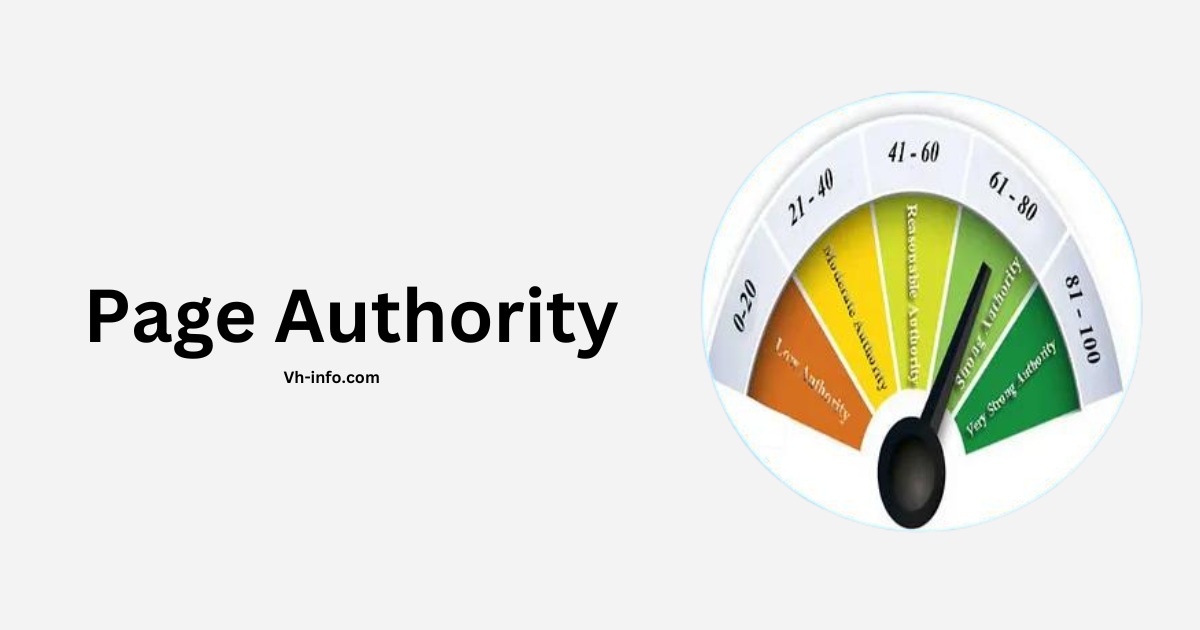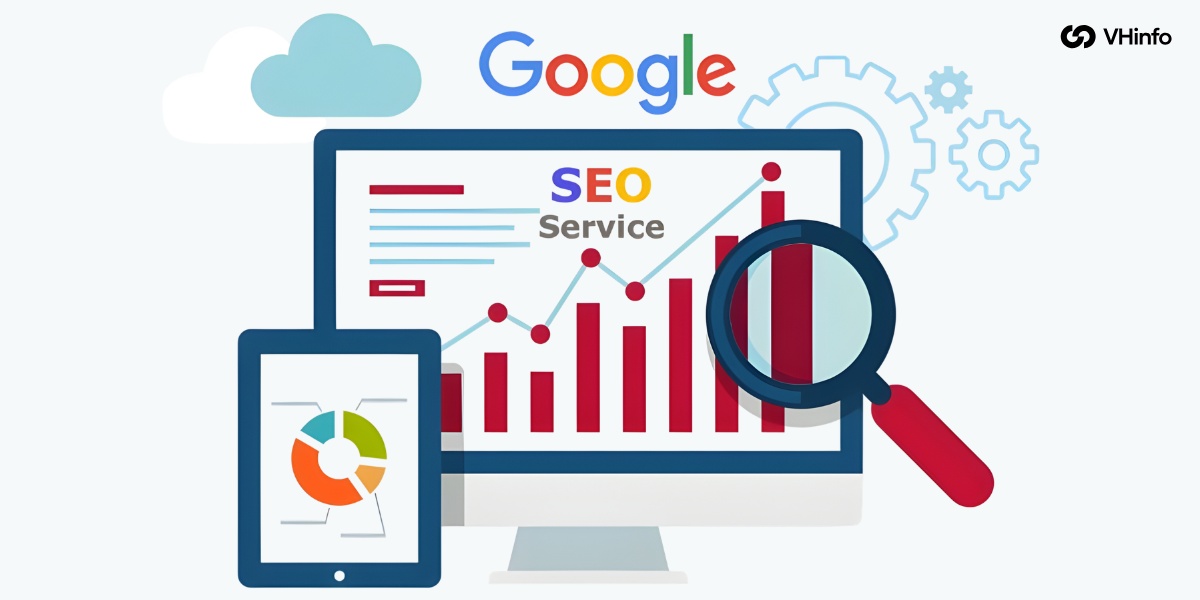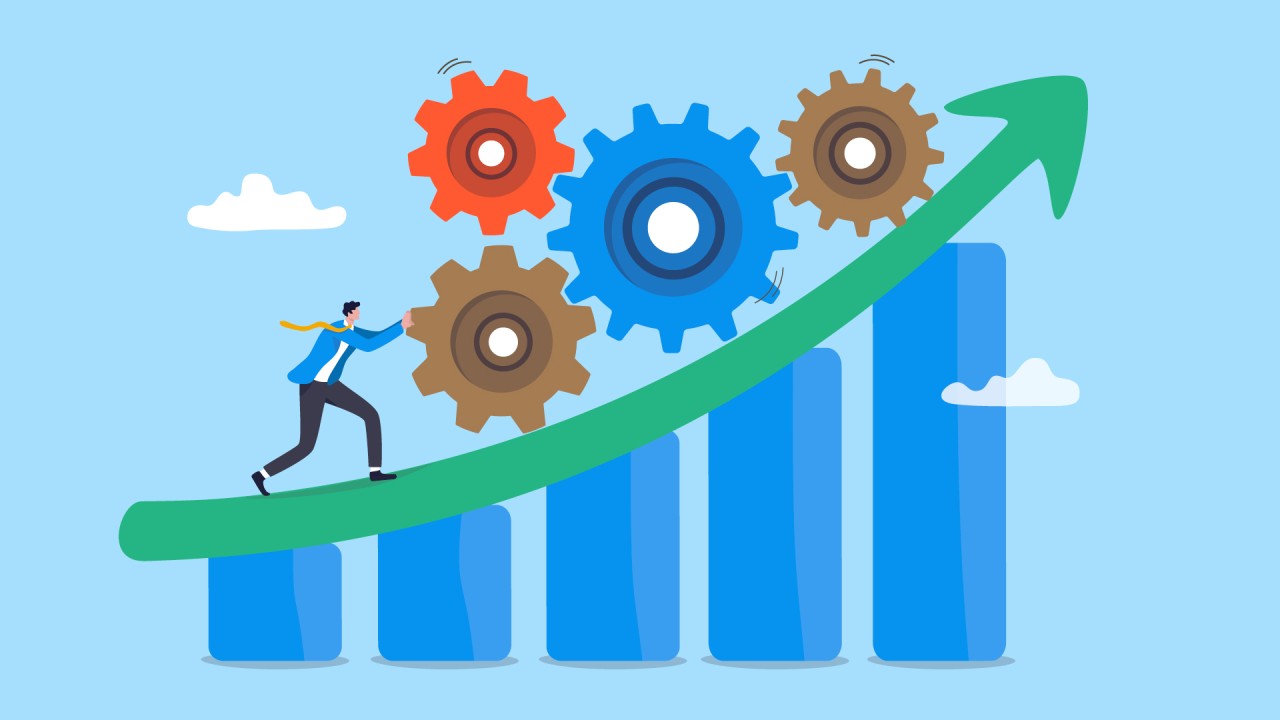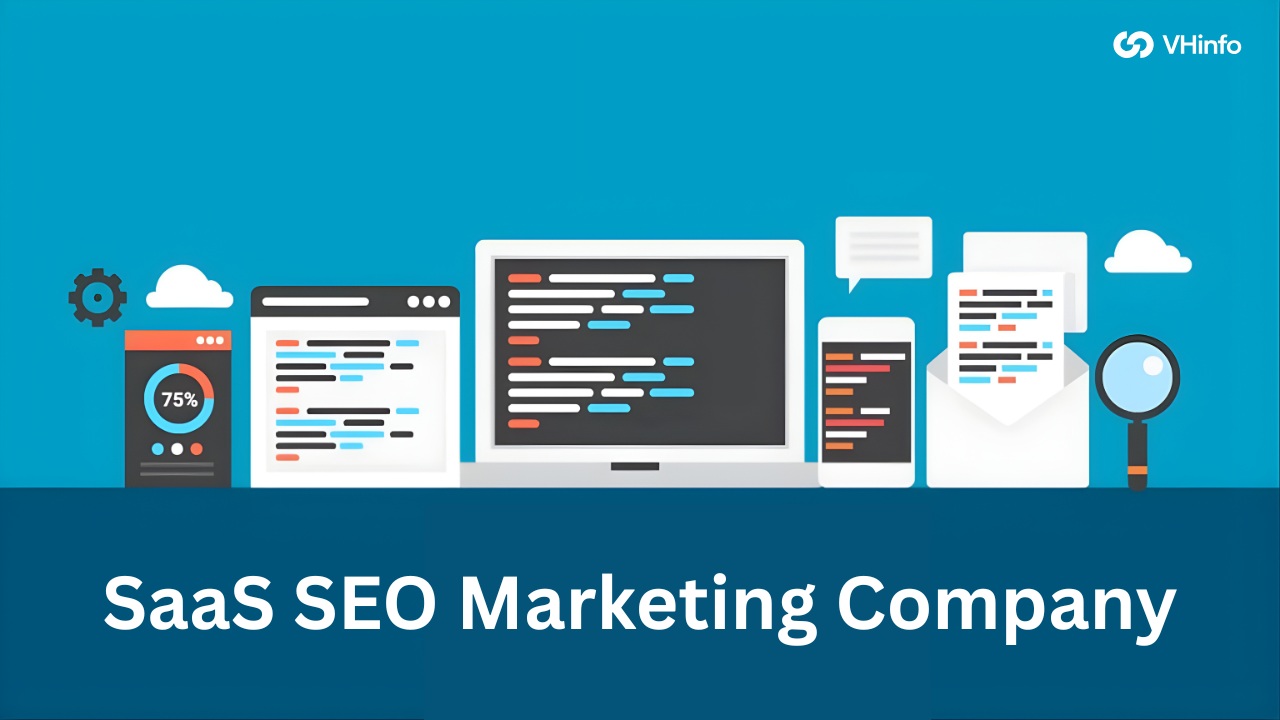Page Authority (PA) is a critical metric in the world of search engine optimization (SEO).
Developed by Moz, Page Authority predicts how well a specific web page will rank on search engine results pages (SERPs). As a SaaS company looking to improve your online visibility and attract more organic traffic, understanding and optimizing your Page Authority is essential.
In this comprehensive guide, VH Info will walk you through everything you need to know about Page Authority, including how it’s calculated, why it matters, and actionable strategies to boost your PA score.
What is Page Authority (PA)?
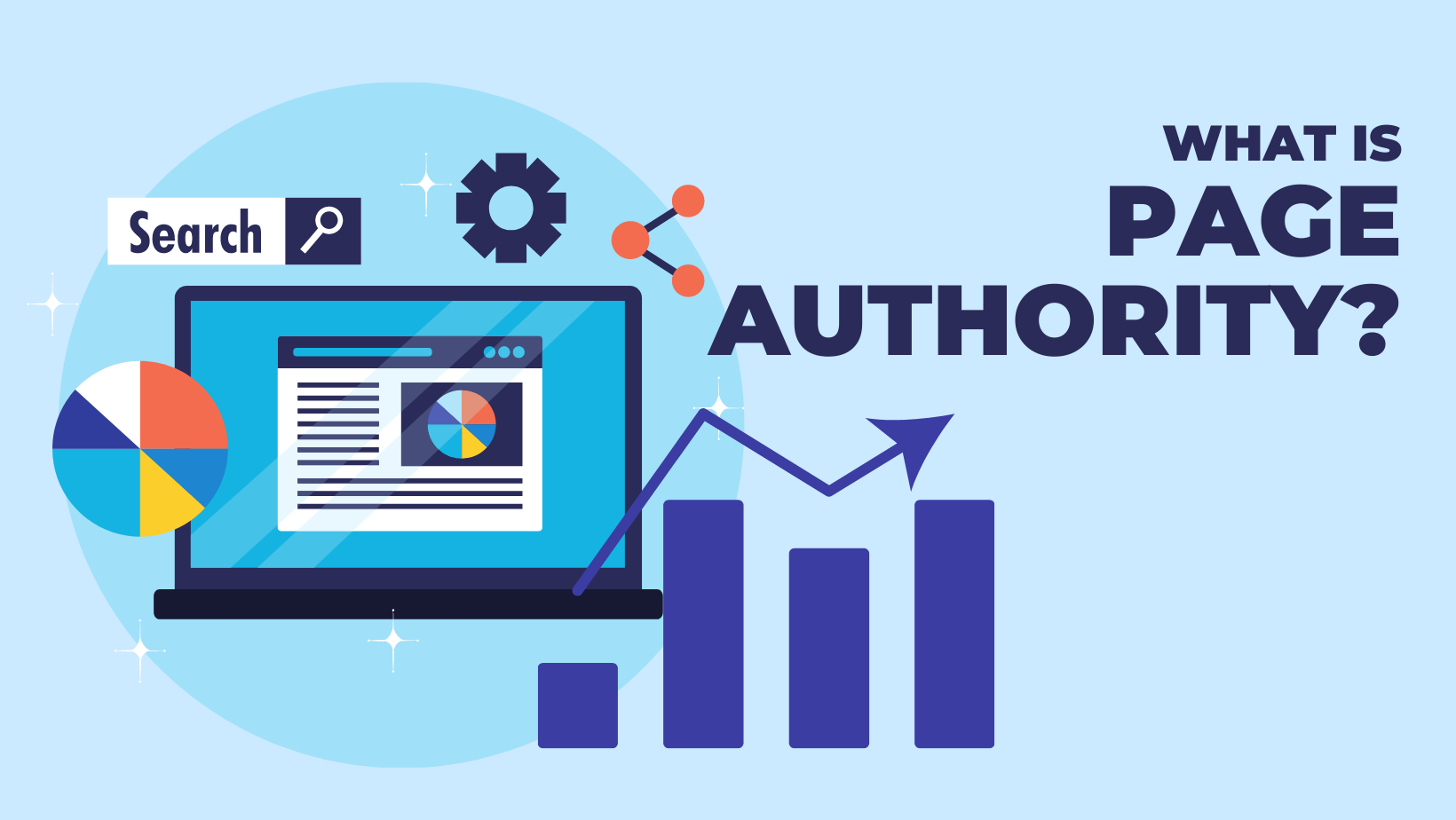
Page Authority is a score that ranges from 1 to 100, with higher scores indicating a greater likelihood of ranking well in search results.
Just a heads up, Page Authority is all about measuring how well a single page can rank, not the whole website. It’s not the same as Domain Authority (DA), which looks at the ranking power of an entire domain or subdomain.
Why is Page Authority Important?

- Benchmarking: Page Authority serves as a valuable benchmarking tool, allowing you to compare your pages’ performance against competitors in your niche. By tracking your PA scores over time, you can gauge the effectiveness of your SEO efforts and identify areas for improvement.
- Backlink Prospecting: When evaluating potential backlink opportunities, Page Authority can help you prioritize high-quality, authoritative websites. By focusing on acquiring links from pages with high PA scores, you can more effectively boost your own page’s authority and search engine rankings.
Importance of Page Authority in SEO
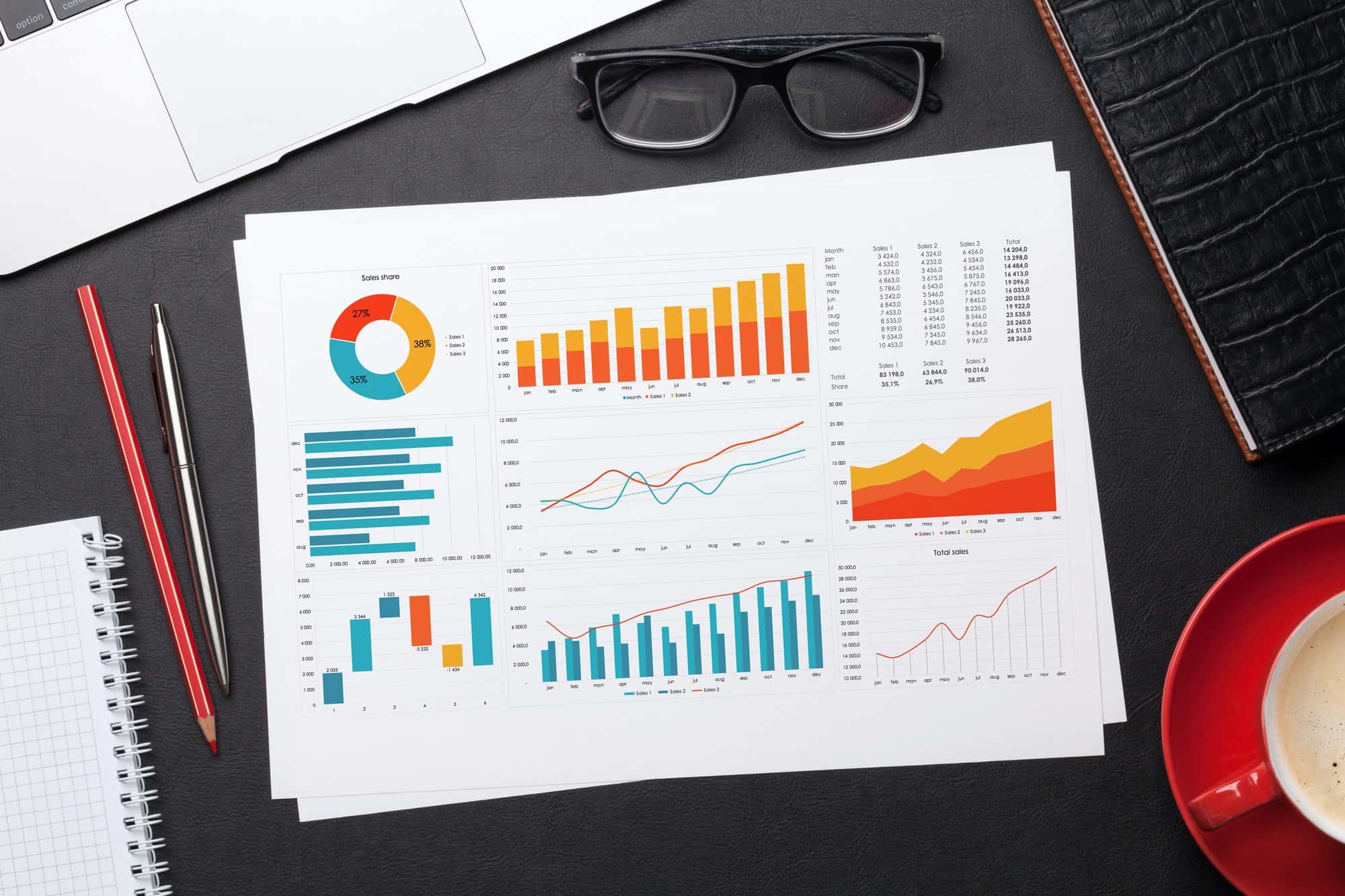
While Page Authority itself is not a ranking factor used by search engines like Google, it’s a strong indicator of a page’s overall SEO performance. Pages with high PA scores typically have a robust backlink profile, quality content, and other positive ranking signals. As such, improving your Page Authority can indirectly lead to better search engine rankings and increased organic traffic.
Factors That Influence Page Authority

Several key factors contribute to a page’s Authority Score, including:
- Quality and quantity of inbound links
- Relevance and authority of linking domains
- Content quality and relevance
- Internal linking structure
- Social media engagement and shares
How is Page Authority Calculated?
Moz calculates Page Authority using a machine learning model that evaluates multiple ranking factors. The algorithm takes into account link metrics from Moz’s web index, such as the number of linking domains, quality of linking pages, and more. The raw scores are then scaled on a 100-point logarithmic scale. It’s worth noting that due to the logarithmic nature of the scale, it’s much easier to grow your score from 20 to 30 than from 70 to 80.
How To Check Page Authority?
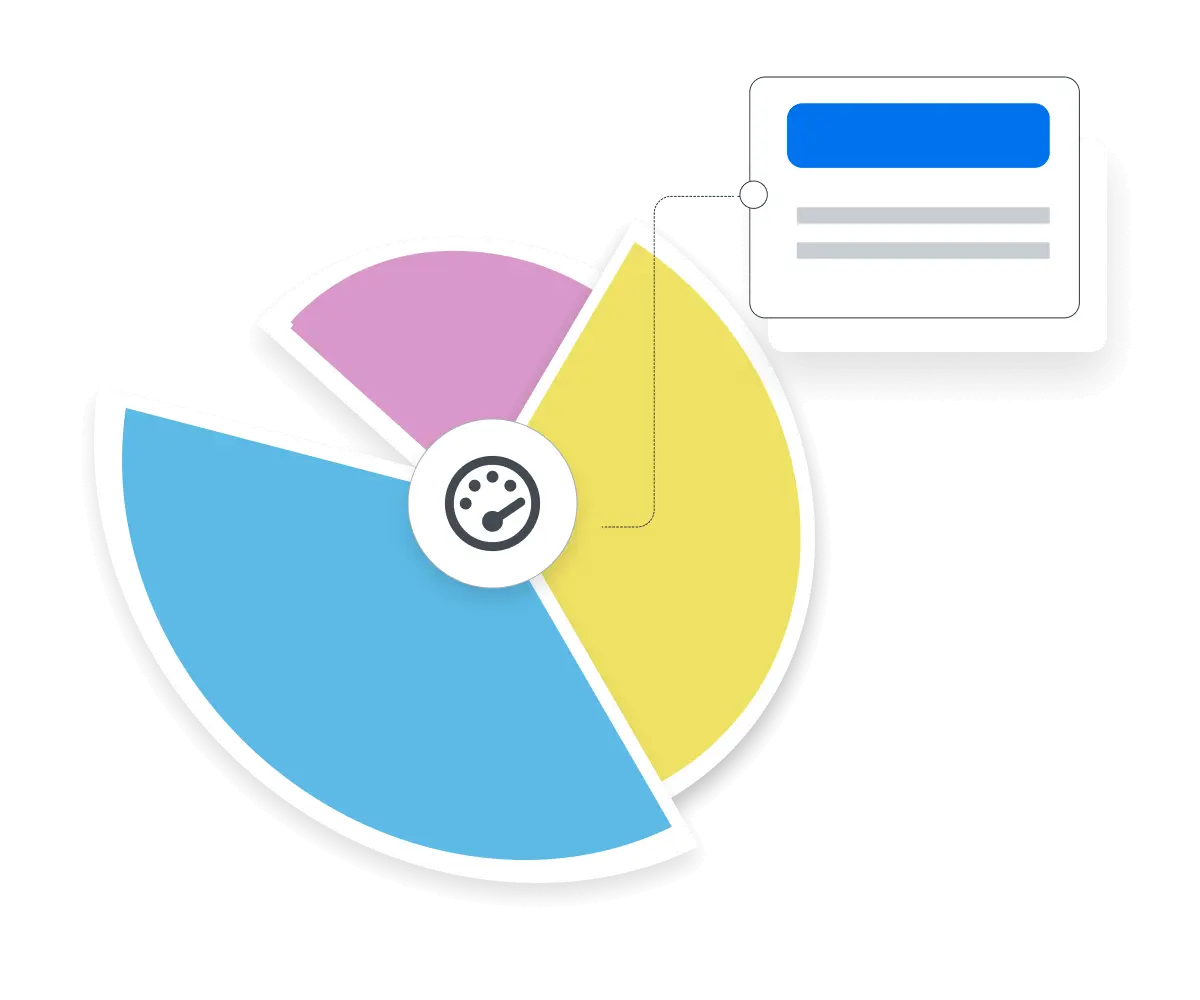
You can check your Page Authority using various SEO tools, such as Moz’s Link Explorer or the MozBar browser extension. Simply enter your page’s URL, and the tool will display your current PA score.
How Often Should I Check My Page Authority?
Since Page Authority is a slow-moving metric, it’s recommended to check your scores once a month. This allows enough time for any changes in your backlink profile or content to be reflected in your PA score.
Can Page Authority Fluctuate Over Time?
Yes, Page Authority can fluctuate due to various factors, such as changes in your link profile, content updates, or algorithm adjustments by Moz. It’s essential to monitor your PA scores regularly and analyze any significant changes to identify potential issues or opportunities.
What is a Good Page Authority Score?
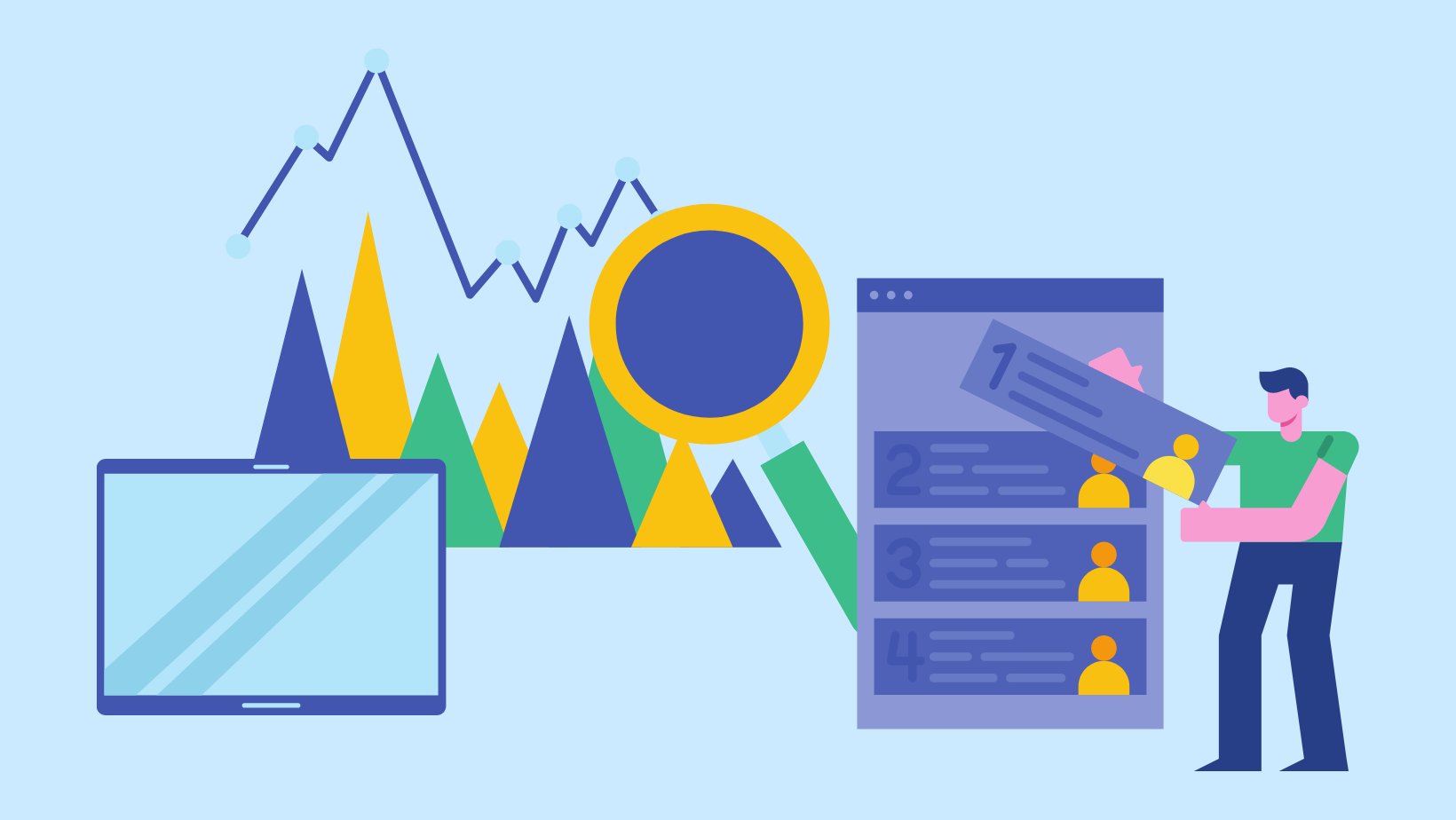
There is no definitive “good” Page Authority score, as it’s a comparative metric. A good PA score is one that’s higher than or comparable to your competitors’ pages. However, as a general guideline, a score of 50 or above is considered decent.
Where Can You Find Page Authority?
You can find Page Authority scores using Moz’s suite of SEO tools, such as Link Explorer, MozBar, and Keyword Explorer. Additionally, PA is integrated into all Moz Pro campaigns and the Moz API.
How to Improve Page Authority?

To improve your Page Authority, focus on the following strategies:
Age and Trust
Older, well-established pages tend to have higher PA scores due to their accumulated link equity and trust. Consistently publishing high-quality content over time can help build your page’s authority naturally.
Popularity
Popular pages that attract a lot of organic traffic and social media shares often have higher PA scores. Create compelling, shareable content that resonates with your target audience to boost your page’s popularity.
Freshness of the Last Update
Regularly updating your content with fresh, relevant information can help maintain or improve your Page Authority. Search engines favor pages that provide current, valuable content to users.
Why Does Page Authority Change?
Page Authority can change for several reasons, including:
- Fluctuations in your link profile (gaining or losing links)
- Content updates or changes
- Algorithm adjustments by Moz
- Changes in your competitors’ PA scores
Is Page Authority a Ranking Factor?
No, Page Authority is not a direct ranking factor used by search engines. However, it’s a strong indicator of a page’s overall SEO performance and potential to rank well in search results.
Difference Between Page Authority and Domain Authority?
Page Authority (PA) and Domain Authority (DA) are two metrics made by Moz, but they measure different things. PA looks at how well one individual page can rank, while DA is about the authority of your entire website.
DA takes into account the overall quality and trust of your whole site. It looks at things like your backlink profile, content quality, and user experience. Your DA score shows how well your website is likely to do in search engine results, no matter which specific page is being viewed.
You can think of DA as the overall reputation of your brand online. On the other hand, PA shows the trustworthiness of one piece of content or a part of your site. Both PA and DA are important for seeing how your website compares to others.
Difference Between PageRank and Page Authority?
PageRank and Page Authority often get mixed up, but they are not the same. PageRank was created by Google. It is a special formula that looks at how important web pages are. It does this by checking how many links point to those pages and the quality of those links. Though we can’t see it anymore, it used to be very important for ranking web pages.
Page Authority is from Moz. This metric also looks at link equity as a key factor, but it uses more data points. Moz uses its own web index called Mozscape. It checks and analyzes data from billions of web pages.
To sum it up, PageRank is all about link equity. It shows how authority moves from one page to another through internal links based on Google’s system. Page Authority takes a wider look. It uses Moz’s link data and other factors to evaluate how strong a page could be in rankings.
FAQ’s:
Can I Improve Page Authority Without Link Building?
While link building is an important factor in improving Page Authority, other strategies like creating quality content, optimizing on-page elements, and improving user engagement can also contribute to higher PA scores.
Is It Possible to Have a High Page Authority But Low Domain Authority?
Yes, it’s possible for a single page to have a high PA score while the overall domain has a lower DA score. This can happen when a specific page attracts many high-quality links, but the rest of the website has a weaker link profile.
Does Page Authority Affect Paid Search Rankings?
No, Page Authority does not directly impact paid search rankings. PA is a metric designed to predict organic search performance, not paid search results.
How Does Page Authority Correlate With Google Rankings?
While Page Authority is not a direct ranking factor, studies have shown a strong correlation between high PA scores and better rankings on Google’s search results pages. Pages with high PA scores often have the necessary qualities and ranking signals that Google values.
Are There Tools to Check Page Authority?
Yes, there are several tools available to check Page Authority, including:
- Moz’s Link Explorer
- MozBar browser extension
- Moz’s Keyword Explorer
Conclusion
Page Authority is a vital metric for SaaS companies looking to improve their search engine rankings and drive more organic traffic to their websites. By knowing what factors affect PA and taking steps to improve your pages, you can increase your Page Authority and beat out your competition in search rankings.
At VH Info, we specialize in helping SaaS businesses develop effective link building and content strategies to improve their Page Authority and overall SEO performance. Our team of experts stays up-to-date with the latest best practices and algorithm changes to ensure your website consistently ranks well and attracts valuable organic traffic.
If you team up with VH Info, you can tap into our knowledge and successful tactics to boost your Page Authority and set yourself up for lasting success in the cutthroat realm of SaaS SEO. Get in touch with us today to find out how we can assist you in mastering Page Authority and owning the search results in your field.
